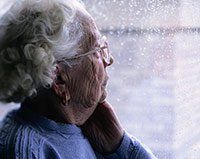Assets You Don't Want to Overlook During Your Divorce
- By Admin
- •
- 08 Jan, 2018
- •

Previous Employer Benefits
You probably already know that you are entitled to a certain percentage of any retirement accounts that your spouse had started or paid into during your marriage. What you may not have thought to investigate is whether or not there are any benefits that your spouse is entitled to from a previous employer. Some of these may include:
- Pension plans
- 401(k) plans
- Stock options
- Deferred compensation
Outstanding Loans to Others
Life Insurance Policies
Season Tickets

Begin Taking Notes
Be Careful When Working With Social Services
Be Careful With Physical Activity
Gather Evidence
Work With an Attorney

Why Live Together at All?
Maintain All Household Expenses
Maintain Separate Living Spaces
Establish Your Own Living Expenses
Have an Agreement About Chores

Age and Primary Caretaker
Standard of Living and Custody Arrangements

Neglecting Basic Needs
Neglecting Personal Hygiene
Medical Neglect
Emotional Neglect or Abuse

Call an Attorney
Get Bailed Out
Build Defense

Who Can Get a Divorce?
Who Gets the Property?
Where Do the Children Live?

When you are injured due to the negligence of another person, your main concern should be healing and recovering from the incident. However, these cases often end up in litigation and can cause even more stress to the injured party. If you have been injured, there are several reasons why the best course of action is to hire a personal injury lawyer.
Experience and Knowledge
When you hire legal representation that specializes in personal injury cases, you are gaining an ally with expertise in dealing with insurance companies. Your lawyer will be able to look at all of the factors in your case and know exactly what your claim is worth. Insurance companies often want to avoid dealing with lawyers, and having legal representation may lead to a quick and fair resolution.
Better Monetary Recovery
Usually, victims who hire a lawyer receive a higher payout than those that do not. Insurance companies typically want to pay out as little as possible, and without an experienced lawyer, you may only be getting a fraction of what you are entitled to.
Peace of Mind
In addition to receiving a substantial payout for your injury, you are also able to relax as your legal representation deals with the insurance company. This will give you the time and energy to focus on recovering from your injury. If you are in need of a personal injury lawyer , please visit Shadd Law Firm, LLC in Columbia.
